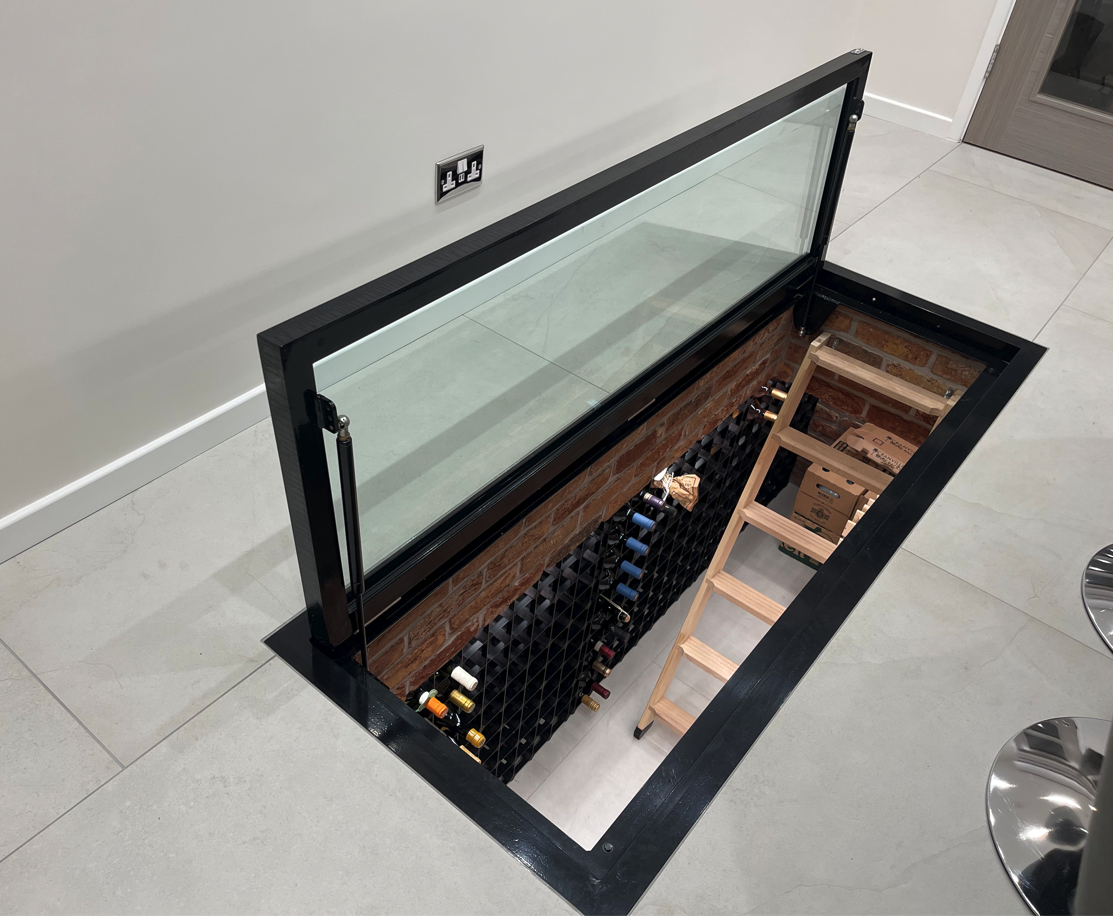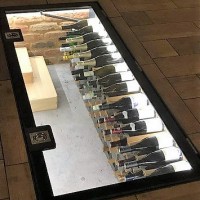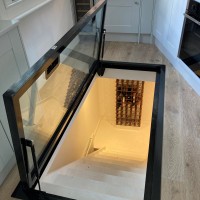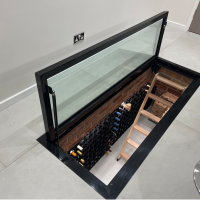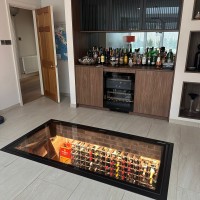Electric vs Manual Wine Cellar Doors
Electric vs Manual Wine Cellars
In this blog we discuss the pros and cons of our electric hinged glass floor system vs a manually operated unit including installation, costs, operation, safety and more…..
So you’ve decided you’d like one of those fancy Dio-Met walk on glass wine cellar doors but can’t decide on whether the manual or electric unit is best for you? This blog aims to differentiate between the two systems and point out the advantages and disadvantages of each.
We’re confident you would be delighted with either however there are certainly a few points to consider before making a purchase :
- Cost
Our gas strut (manual) operated hinged glass floor units are the cheapest option of the two and cost will vary on size from approximately £800 to £5,000. An electric unit by comparison would cost in the range of £3,000 - £9,000.
- Convenience
A manual glass floor will be much quicker to open and close, within a few seconds each way, whereas the electric unit will take around a minute to open. Whilst a minute isn’t a long time, it can seem an eternity if you’re in a rush to grab a bottle of your best merlot from the cellar.
On the flip side, the electric unit can be opened with the push of a switch or with a remote control without so much as leaving your sofa, whereas the manual system requires the user to bend down and start lifting the hatch to engage the gas struts.
- Installation
Both the electric and manual wine cellar systems are simple to install and the general design of the framing is identical for installation purposes; both are supplied fully assembled and ready to fit into your opening with minimal trade skill or knowledge.
The electric unit is therefore still easy to install, and the control box simply runs off a standard UK plug however the wall mounted switch will require a qualified electrician to install.
- Safety
Each hinged glass floor unit will come with associated risks covered in the user manual and are generally similar in terms of usage for both systems; managing risks whilst open, standing clear of a closing door, keeping locked and not to be used by children etc.
The electric unit has many built in safety features including sounder buzzer, key-override system, excess pressure reverse and a slow smooth operation. Without the requirement to manually assist the door, there is also a much lower chance of any accident.
Although both systems will hold in the open position, the manual unit has the potential to be closed by accident with enough force or if fallen on whereas the electric unit can only be closed with the use of the wall switch or remote control.
The electric unit of course will require a live electric current to operate, so in the unlikely event of a powercut, would be rendered inoperable.
- Size
The parameters for manufacture remain constant over the two styles of hatch with a minimum size of 600 x 600mm and a maximum of 2000 x 1000mm. Whilst still easy to open, the larger manual units will require more user effort to engage the gas struts and get started when opening.
A large manual system will require dynamic movement to open, by starting the to lift the unit from the front and then continuing around the side of the unit to fully open in order to avoid leaning over an open void (particularly where the system is a door to a basement, stair or other large drop).
For the reasons stated above, we would always recommend strong preference be given to an electric unit on larger sizes; those being over 1500mm wide and 1000mm deep.
- Maintenance
The glass and framework should be maintained the same on both manual and electric hinged glass floors however should an actuator need replacing for any reason, this is considerably cheaper and easier with a manual system where a replacement strut can be installed- The electric system will require the control box reprogramming to any new motorised actuators. By contrast, the electric actuators are more likely to outlast those of a manual unit.
- Wow Factor
Visually both units are very similar. We offer two handle styles on our manual wine cellar doors however the electric system is completely handle-free for the cleanest aesthetic.
For years we only offered a manual unit, which always got much praise and attention when installed and looks now looks stunning in thousands of homes across the world however to compare the two side-by-side, the electric unit is much more likely to wow the crowd when operated!
- Conclusion
Only you can decide based on the above factors which wine cellar door system is right for you, or your home. If budget allows, the electric hinged glass floor unit is the premium choice, but of course at a premium price tag.
View our full range of electric and manual systems, obtain a price, or buy online here : DioMet Wine Cellar Doors
Contact us with your manual or electric wine cellar door enquiry 0114 243 9009 or email us sales@diometonline.co.uk
Please login to Comments

